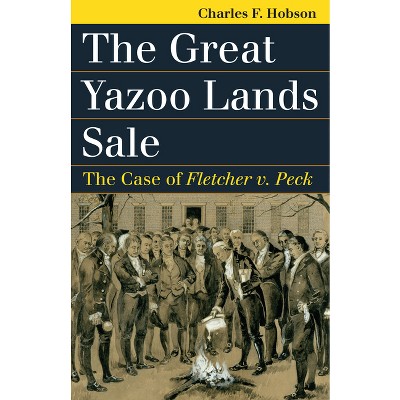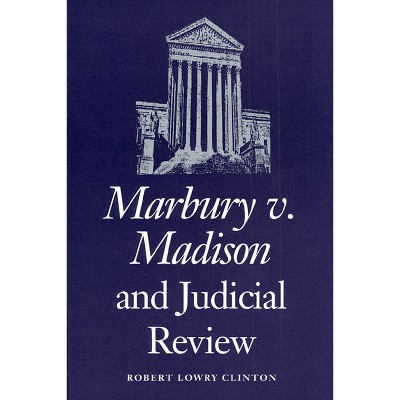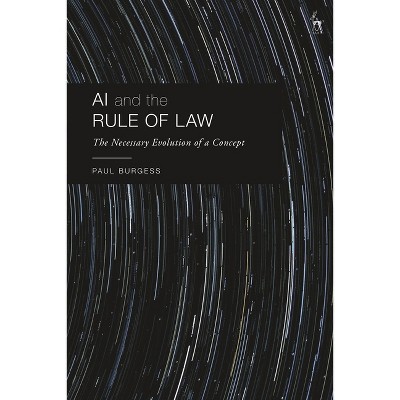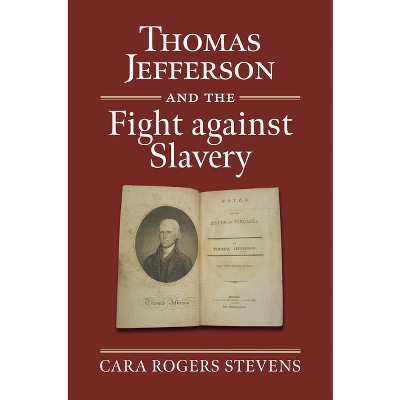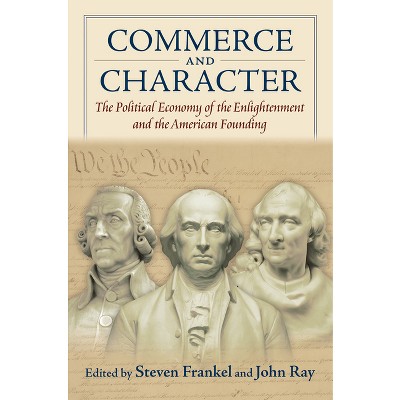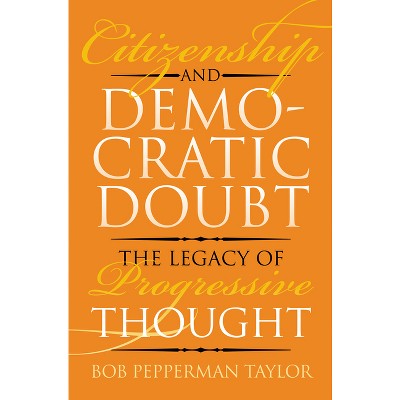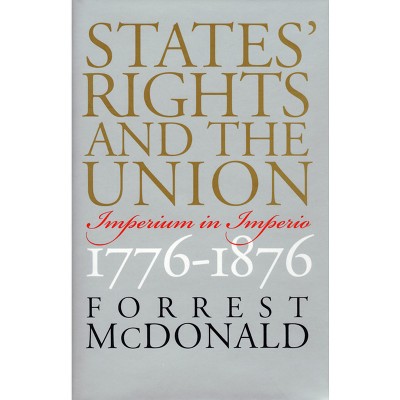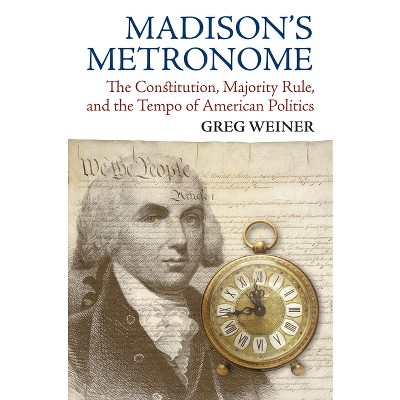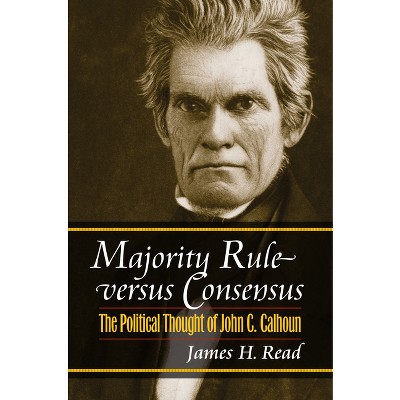Sponsored

The Great Chief Justice - (American Political Thought) by Charles F Hobson (Paperback)
In Stock
Sponsored
About this item
Highlights
- John Marshall remains one of the towering figures in the landscape of American law.
- Author(s): Charles F Hobson
- 272 Pages
- Biography + Autobiography, Lawyers & Judges
- Series Name: American Political Thought
Description
Book Synopsis
John Marshall remains one of the towering figures in the landscape of American law. From the Revolution to the age of Jackson, he played a critical role in defining the "province of the judiciary" and the constitutional limits of legislative action. In this masterly study, Charles Hobson clarifies the coherence and thrust of Marshall's jurisprudence while keeping in sight the man as well as the jurist. Hobson argues that contrary to his critics, Marshall was no ideologue intent upon appropriating the lawmaking powers of Congress. Rather, he was deeply committed to a principled jurisprudence that was based on a steadfast devotion to a "science of law" richly steeped in the common law tradition. As Hobson shows, such jurisprudence governed every aspect of Marshall's legal philosophy and court opinions, including his understanding of judicial review. The chief justice, Hobson contends, did not invent judicial review (as many have claimed) but consolidated its practice by adapting common law methods to the needs of a new nation. In practice, his use of judicial review was restrained, employed almost exclusively against acts of the state legislatures. Ultimately, he wielded judicial review to prevent the states from undermining the power of a national government still struggling to establish sovereignty at home and respect abroad. No chief justice and only one associate justice (William Douglas) served longer on the Supreme Court. But, as Hobson clearly shows, Marshall's deserved place in the pantheon of great American jurists rests far more upon principles than longevity. This book better than any other tells us why that's true and worthy of our attention.From the Back Cover
John Marshall remains one of the towering figures in the landscape of American law. From the Revolution to the age of Jackson, he played a critical role in defining the "province of the judiciary" and the constitutional limits of legislative action. In this masterly study, Charles Hobson clarifies the coherence and thrust of Marshall's jurisprudence while keeping in sight the man as well as the jurist. Hobson argues that contrary to his critics, Marshall was no ideologue intent upon appropriating the lawmaking powers of Congress. Rather, he was deeply committed to a principled jurisprudence that was based on a steadfast devotion to a "science of law" richly steeped in the common law tradition. As Hobson shows, such jurisprudence governed every aspect of Marshall's legal philosophy and court opinions, including his understanding of judicial review. The chief justice, Hobson contends, did not invent judicial review (as many have claimed) but consolidated its practice by adapting common law methods to the needs of a new nation. In practice, his use of judicial review was restrained, employed almost exclusively against acts of the state legislatures. Ultimately, he wielded judicial review to prevent the states from undermining the power of a national government still struggling to establish sovereignty at home and respect abroad.Review Quotes
"In this clear and concise work, Hobson challenges many traditional assumptions about the nation's most famous chief justice. He depicts John Marshall as 'a master of the law' who consciously sought to separate the political from the legal."--Journal of Southern History
"Learned, deft, concise, economical, and, appropriately enough, judicious. A remarkably thoughtful appraisal."--Jack N. Rakove, Virginia Magazine of History and Biography
"This splendid book illuminates the pragmatic and practical side of Marshall's jurisprudence, helping us to understand how this greatest of all American judges separated law from politics without ever losing sight of the importance of constitutional law and jurisprudence for the world of politics."--Kermit L. Hall, author of The Magic Mirror: Law in American History
"No student of our legal history, lay or professional, should miss this book."--Edwin M. Yoder, Jr., Washington Post columnist
"A learned, lucid, and insightful work that will be welcomed by a wide audience."--Noble E. Cunningham, Jr., author of The Presidency of James Monroe
"Will become the standard work on Marshall."--Robert Allen Rutland, author of James Madison and the American Nation
Shipping details
Return details
Frequently bought together



Trending Non-Fiction






